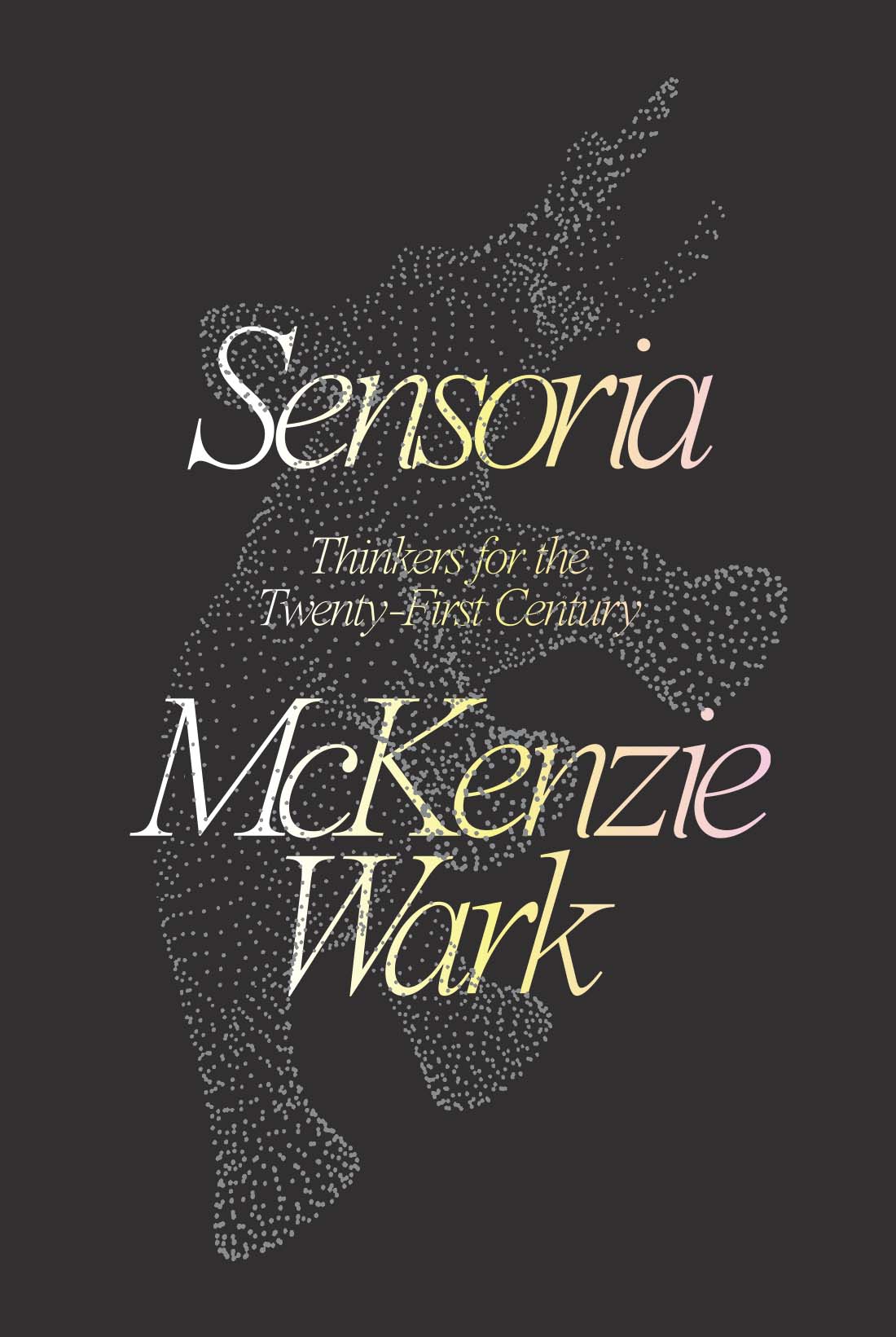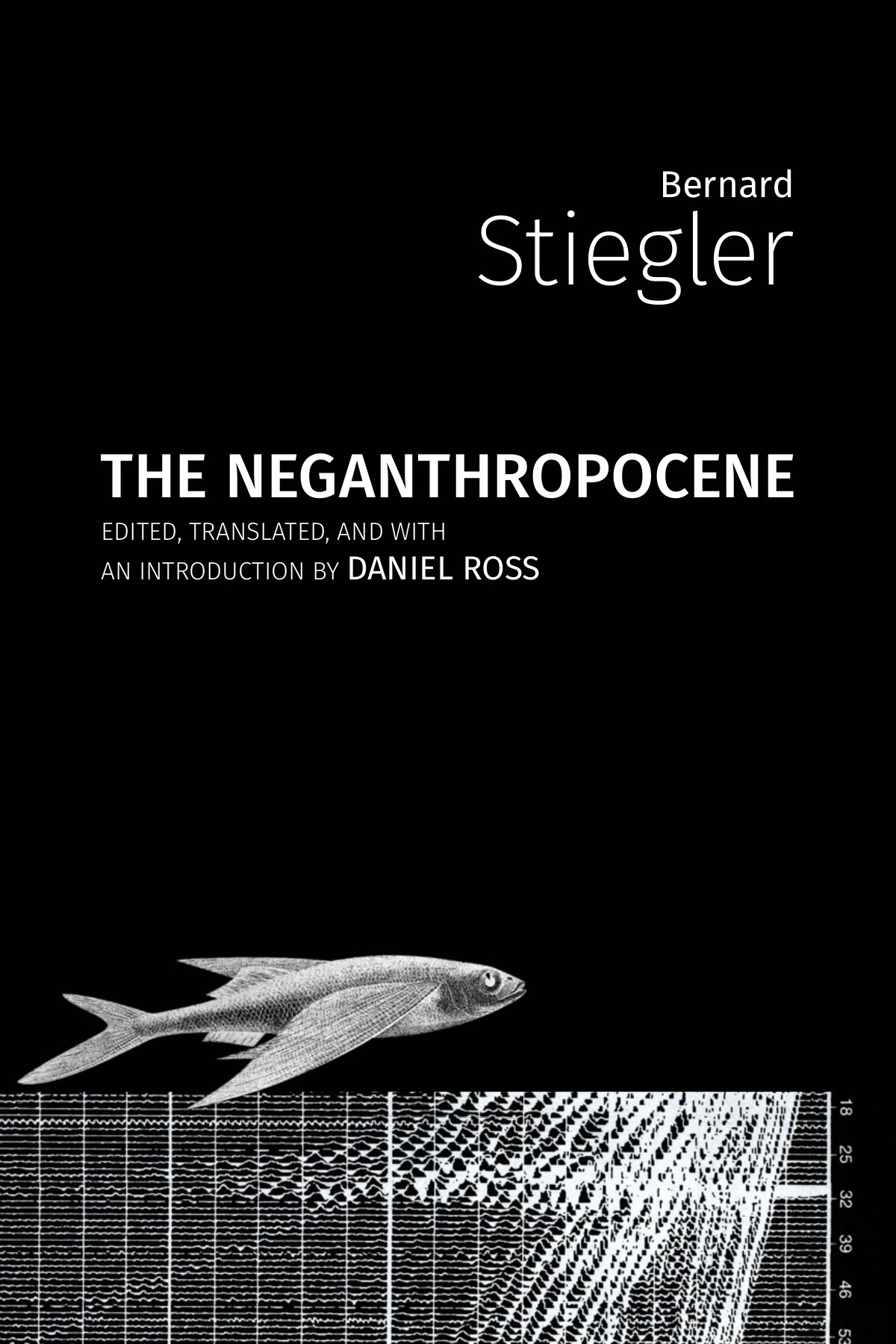McKenzie Wark: Sensoria: Thinkers for the Twenty-first Century (2020)
Filed under book | Tags: · aesthetics, afrofuturism, anthropocene, art, detournement, earth, ethnography, hacker culture, marxism, postcolonialism, technics, theory

“A survey of the key thinkers and ideas that are rebuilding the world in the shadow of the Anthropocene
As we face the compounded crises of late capitalism, environmental catastrophe and technological transformation, who are the thinkers and the ideas who will allow us to understand the world we live in? McKenzie Wark surveys three areas at the cutting edge of current critical thinking: media ecologies, post-colonial ethnographies, and the design of technology, and introduces us to the thinking of seventeen major writers who, combined, contribute to the common task of knowing the world. Each chapter is a concise account of an individual thinker, providing useful context and connections to the work of the others.
The authors include: Sianne Ngai, Kodwo Eshun, Lisa Nakamura, Hito Steyerl, Yves Citton, Randy Martin, Jackie Wang, Wang Hui, Anna Lowenhaupt Tsing, Achille Mbembe, Eyal Weizman, Cory Doctorow, Benjamin Bratton, Tiziana Terranova, Keller Easterling, Jussi Parikka, Deborah Danowich and Eduardo Viveiros de Castro.
Wark argues that we are too often told that expertise is obtained by specialisation. Sensoria connects the themes and arguments across intellectual silos. The book is a vital and timely introduction to the future both as a warning but also as a roadmap for how we might find our way out of the current crisis.”
Publisher Verso Books, London, July 2020
ISBN 9781788735063, 1788735064
296 pages
Reviews: J.J. Charlesworth (ArtReview, 2020), Lindsay Lerman (Entropy, 2020), Travis Diehl (LA Review of Books, 2020), Jessica Caroline and Emily Colucci (Filthy Dreams, 2020).
Comment (0)Bernard Stiegler: The Neganthropocene (2018)
Filed under book | Tags: · anthropocene, capitalism, cinema, technics, technology, theory

“As we drift past tipping points that put future biota at risk, while a post-truth regime institutes the denial of ‘climate change’ (as fake news), and as Silicon Valley assistants snatch decision and memory, and as gene-editing and a financially-engineered bifurcation advances over the rising hum of extinction events and the innumerable toxins and conceptual opiates that Anthropocene Talk fascinated itself with—in short, as ‘the Anthropocene’ discloses itself as a dead-end trap—Bernard Stiegler here produces the first counter-strike and moves beyond the entropic vortex and the mnemonically stripped Last Man socius feeding the vortex.
In the essays and lectures here titled Neganthropocene, Stiegler opens an entirely new front moving beyond the dead-end “banality” of the Anthropocene. Stiegler stakes out a battleplan to proceed beyond, indeed shrugging off, the fulfillment of nihilism that the era of climate chaos ushers in. Understood as the reinscription of philosophical, economic, anthropological and political concepts within a renewed thought of entropy and negentropy, Stiegler’s ‘Neganthropocene’ pursues encounters with Alfred North Whitehead, Jacques Derrida, Gilbert Simondon, Peter Sloterdijk, Karl Marx, Benjamin Bratton, and others in its address of a wide array of contemporary technics: cinema, automation, neurotechnology, platform capitalism, digital governance and terrorism. This is a work that will need be digested by all critical laborers who have invoked the Anthropocene in bemused, snarky, or pedagogic terms, only to find themselves having gone for the click-bait of the term itself—since even those who do not risk definition in and by the greater entropy.”
Edited, translated, and with an introduction by Daniel Ross
Publisher Open Humanities Press, London, 2018
CCC2: Irreversibility series
Creative Commons BY-SA 4.0 License
ISBN 9781785420481
345 pages
Erich Hörl: The Technological Condition (2011/2015)
Filed under paper | Tags: · cybernetics, ecology, philosophy, philosophy of technology, subjectivity, technics, technology, work
Partial translation of the introduction to Die technologische Bedingung. Beiträge zur Beschreibung der technischen Welt, ed. Hörl (Suhrkamp 2011), a book “seeking to reformulate the (media)technical question under neocybernetic conditions at the beginning of twenty-first century. As such, it is part of a three-volume project. It follows Die Transformation des Humanen. Beiträge zur Kulturgeschichte der Kybernetik, eds. Michael Hagner and Erich Hörl (Suhrkamp 2008), and it will be followed soon by On General Ecology. The New Ecological Paradigm in the Neocybernetic Era, ed. Hörl.”
Translated by Anthony Enns
Published in Parrhesia 22, 2015, pp 1-15
Open access
More from Erich Hörl, and on philosophy of technology and media ecology.
Comment (0)
